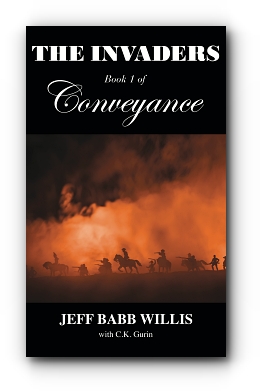| ||||||||||||||||
| Category: Fiction:Adventure |
(requires Adobe Reader)
|
| About the Book | |
|
Richard Bryan of Mt. Lebanon, Louisiana was the consummate idealist. He had a forward-looking outlook. Slavery was an anachronism. In 1856, five years before the war, he offered emancipation to all 97 on his plantation, hired a teacher, deeded land, shared profits, and encouraged entrepreneurs. The Civil War devastated the South, but the war never reached his home. When Union occupiers arrived in Mt. Lebanon a decade later, they were astounded to find Bryan's experiment fully implemented. Former slaves could not only “read, write, and cipher,” they were landowners engaged in a trade, and some were even bilingual. Bryan's objective was to facilitate the “conveyance” of his peaceful society from pre-war to post-war America. He saw no reason why he could not achieve this goal. Union occupiers envisioned a plethora of beneficial propaganda, but Bryan declined to be used by aggressive new politicians who demanded his cooperation to further their agenda. After the Confederate surrender, Richard Bryan, his family, their hired hands, the people, and a wounded Yankee deserter his young sons had stumbled upon in the woods and brought home with them, found themselves at the mercy of a corrupt Governor, political hacks, petty tyrants, and remorseless convicts in military uniform. Not just rustlers but occupying troops would frequently raid farms. Often, they’d steal entire harvests. If you resisted the men in uniform, they might hang you and burn your place down out of spite. There was no legal recourse against the government. Food became scarce, hard money even more so. “Injun Grass” as it was known to those who smoked it, grew wild on their land. It was good quality, so they’d periodically harvest it and offer little poke bags of cannabis for sale to visitors who were passing through on the stagecoach. Occasionally they’d even sell some to soldiers. Every penny counted. They tightened their belts, quietly bartered for weapons, secretly manufactured ammunition, and killed in self-defense when they were faced with no other choice. Their joint goal was survival. Some of them would make it. What transpired across the South might today be equated to legal, as well as militarized police brutality by occupying forces. The experience of all, regardless of color, who lived through this traumatic and tumultuous time in history, burned itself deeply into America’s collective psyche.
|
|
| Related Titles | |
|
|
| About the Author | |
 |
Jeff Willis was born in El Dorado, Arkansas and attended Louisiana State University. He graduated in 1979 with a double major in Journalism and History. He worked in Broadcast Television for 20 years before switching to Banking/Financial Services in 1999. |

